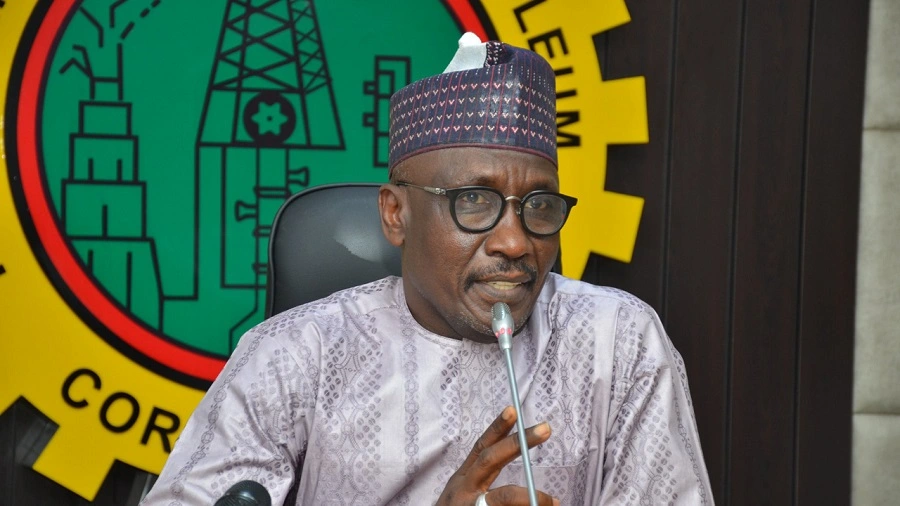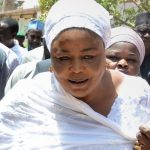...To get all news updates, Join our WhatsApp Group (Click Here)
Also Join our WhatsApp Channel (Click Here)
Despite huge investments in the oil sector, the country’s crude oil revenue has continued on a downward trajectory. This is as militants have threatened to resume attacks on critical oil installations in the Niger Delta, writes OPEOLUWANI AKINTAYO
The country has been struggling with revenue shortfall for some time due to oil theft in the Niger Delta. The recent threats by a Niger Delta militant group, Creek Reform Warriors, to vandalise major oil platforms in the region would worsen the country’s cash crunch. Nigeria earns about 80 per cent of its revenue from crude oil exports.
From January to May, the net oil export revenue of the country experienced a significant decline of 66 per cent, falling to $11bn, against the $34bn earned during the same period last year, according to data obtained from the Organisation of Petroleum Exporting Countries Revenue Factsheet released by the U.S. Energy Information Administration.
It earned about $46b from oil in 2022, according to the National Bureau of Statistics.
Its oil output fluctuated between 985,000 barrels per day in the third quarter of last year and 1.2b million b/d in Q4. It dipped further to 999,000 barrels in April before picking up again in May to 1.1mb/d.
In contrast, Saudi Arabia and the United Arab Emirates have plans in place to significantly boost their production capacity to 13 million bpd and 5 million bpd, respectively, by 2027. Both countries currently produce about 12 million/bpd and 4 million/bpd.
Fellow Gulf producer Kuwait on June 18 also said it would boost its production capacity by 200,000 bpd by 2025 to reach 3 million bpd.
Capacity additions from the three Gulf countries over the 2020-2025 period total a combined 1.2 million bpd, double the capacity that Nigeria and Angola are projected to lose over the same period, according to a Reuters calculation.
A similar report by the agency published by The PUNCH, had said that the country’s combined production quota of Angola in the ongoing OPEC cuts dropped by over 3 per cent to below 9 per cent in May.
The country’s OPEC quota had dropped from 1.8mb/d to 1.3mb/d in May as its capacity continues to be restricted by operational and security issues, combined with low investment levels, leading to decline.
In May, while Saudi Arabia, the UAE and Kuwait’s shares of total OPEC production was over 10 per cent higher than it was 15 years ago at 55 per cent, Nigeria and Angola’s total shares over the same period shrank by over three per cent to below nine per cent.
Unlike Gulf producers, African producers rely heavily on investment from international oil companies. Those companies have shunned Africa in recent years in favour of investment in the US shale patch and in prolific giant oilfields elsewhere such as offshore Brazil and Guyana.
The EIA in one of its reports said Nigeria was no longer Africa’s highest crude oil producer due to disruptions, which were threatening its production outputs.
“For many years, more crude oil was produced in Nigeria than in any other country in Africa. However, unplanned production outages—or disruptions—in Nigeria have, at times, resulted in its crude oil production falling below that of Angola, the second-highest producing country in Africa. Disruptions remain a significant and persistent downside risk to Nigeria’s crude oil production,” the report said.
The EIA, however, projected that Nigeria’s earnings would increase to about $29b in the same period (January-May) in 2024.
The report revealed that Angola, which was the closest continental rival to Nigeria in oil export, made about $12b within the period, while Saudi Arabia, the highest oil producer in OPEC realised $97bn.
Meanwhile, the entire OPEC members earned about $888bn in net oil export revenue in 2022. The revenue rose nearly 43 per cent compared with the previous year, according to the EIA.
“The increase in net export revenue in 2022 is mostly attributable to higher crude oil prices and to a lesser degree to higher petroleum liquids production,” the EIA said in the fact sheet.
OPEC’s total oil output rose to nearly 34.2 million barrels per day in 2022 and increased by 2.5 million barrels per day year-on-year, according to the report.
“We expect OPEC total oil liquids production to decrease to 33.5 million barrels per day in 2023, while the forecast Brent spot price will fall from $101 per barrel in 2022 to $80 per barrel,” it added.
The organisation projected that OPEC’s net oil export revenue would go on to increase in 2024.
“In tandem with a forecast increase in OPEC output in 2024, based on the June 2023 STEO, we expect that OPEC net export revenue will rise to $682bn,” the EIA stated in the sheet.
“We forecast that global crude oil prices will increase in 2024, reflecting global oil inventories that will decrease in each of the next five quarters,” the EIA added.
According to the fact sheet, the top five OPEC countries in terms of net oil export revenue will remain the same as 2022 and 2021 in both 2023 and 2024, although the exact figures will alter.
The report revealed that Saudi Arabia had the highest net oil export revenue among OPEC members last year at $311b. The fact sheet placed Iraq in second, with $131b, the United Arab Emirates in third, with $119b, Kuwait in fourth, with $98b, and Iran in fifth, with $54b.
The fact sheet sees Saudi Arabia’s net oil export revenue coming in at $215bn in 2023 and $223bn in 2024.
According to it, Iraq’s net oil export revenue would hit $96bn in 2023 and $103bn in 2024, the UAE’s net oil export revenue at $91bn in 2023 and $92bn in 2024.
It added Kuwait’s net oil export revenue would be $74bn in 2023 and $77bn in 2024, and Iran’s net oil export revenue at $44bn this year and $48bn next year.
Apart from security challenges, international oil companies had begun divesting from Nigeria, thereby slowing exploration for fresh oil.
However, The PUNCH recently exclusively reported how Shell Global had directed its Nigerian affiliate, Shell Petroleum Development Commission to ramp up exploration in the coming months.
Shell wants to increase earnings due to low income from renewables.
According to the report quoting a company source, Shell’s Chief Executive Officer, Wael Sawan, wants to keep oil and gas profits booming in order to regain investors’ confidence.
Threat in Niger Delta
Amid the dwindling low oil revenue, a self-acclaimed Niger Delta militant group, Creek Reform Warriors, threatened to resume attacks on major oil facilities in the region.
In a statement, the group particularly threatened to attack facilities operated by the Shell Petroleum Development Company of Nigeria, over alleged unjust sacking of some workers in Forcados terminal.
The leader of the group, Igbokuro Tinowei, demanded the reinstatement of all workers from the Ogulagha and Odimodi communities, who according to him, were sacked unjustly by SPDC in 2019.
He claimed that the IOC had promised to recall the sacked workers immediately after the COVID-19 pandemic, but serially defaulted,
He warned the management of SPDC to reinstate the said workers within two weeks or face dire consequences of brutal attacks.
The group urged President Bola Tinubu to intervene and persuade SPDC management to reinstate the dismissed workers. It emphasised that the repercussions of the attacks on Shell facilities would have a detrimental effect on the country’s oil production quota and the already struggling economy.
The statement read in parts, “If these workers from Ogulagha and Odimodi communities are not called, all SPDC operations in the Niger Delta, including their pipelines, will be shut down. This is going to be a do-or-die.
“We are not joking. We are a deadly and dangerous group in the Niger Delta region. We have a team of specialists in different fields of the world. Our struggle is for the liberation of our people from unemployment in the hands of Shell Petroleum Development Company Limited (SPDC) and other International Oil Companies (IOCs) operating in the region.
“We can boldly tell the world that all preparations and plans are on the ground to bring down the Nigerian crude oil production to zero per cent and this will continue until the IOCs employ our people. There will be no going back,” the group said.
SPDC’s spokesperson did not respond to enquiries on the allegations and threat on its installations.
FG to renegotiate OPEC quota
Amid the uproar, the Nigerian national Petroleum Company Limited said the Federal Government would renegotiate the country’s production quota in the ongoing OPEC+ cuts by November.
Group Chief Executive Officer, Mele Kyari, during a live interview with Bloomberg, said the country was working towards ramping up crude oil production by about 200,000 to 300,000 barrels per day latest by October.
According to him, the government would then push for an increased quota at the next OPEC+ meeting in November.
“OPEC understands that it is not that Nigeria does not have what it takes to produce more crude, but the challenge has been in terms of security, and everything we are doing to combat insecurity in the Niger Delta is working.
“OPEC has now given us (Nigeria) a target to increase production between now and October, and that figure is going to be worked with. I think it’s very practical to get to between 1.5/1.6mpd by October,” Kyari said.
Nigeria’s crude oil production, including condensates, is around 1.3 million barrels per day, according to Kyari.
The OPEC and its partner, Russia, also known as the OPEC+ are currently cutting oil exports to boost prices.
The NNPCL boss said the current production was “nowhere near Nigeria’s capacity”.
“We have a clear case during the COVID. We had the capacity to do close to 2.1mb/d. So, we know we have the capacity. The issues are around the pipeline, and once we are able to resolve the challenges, then, we can produce higher,” he added.
You can get every of our news as soon as they drop on WhatsApp ...To get all news updates, Join our WhatsApp Group (Click Here)
Also Join our WhatsApp Channel (Click Here)

















